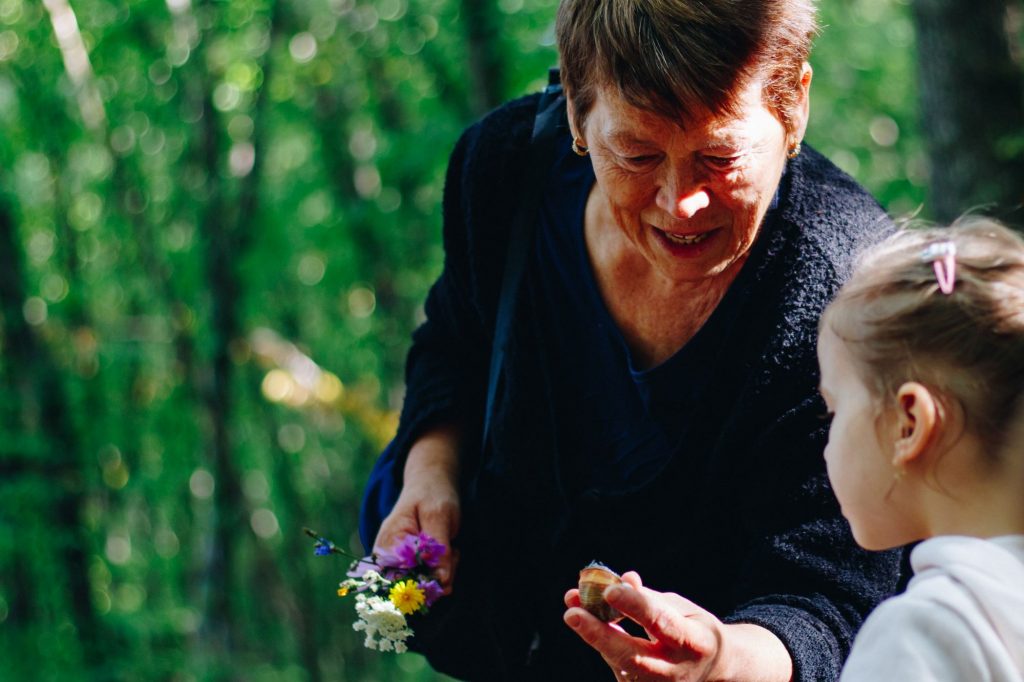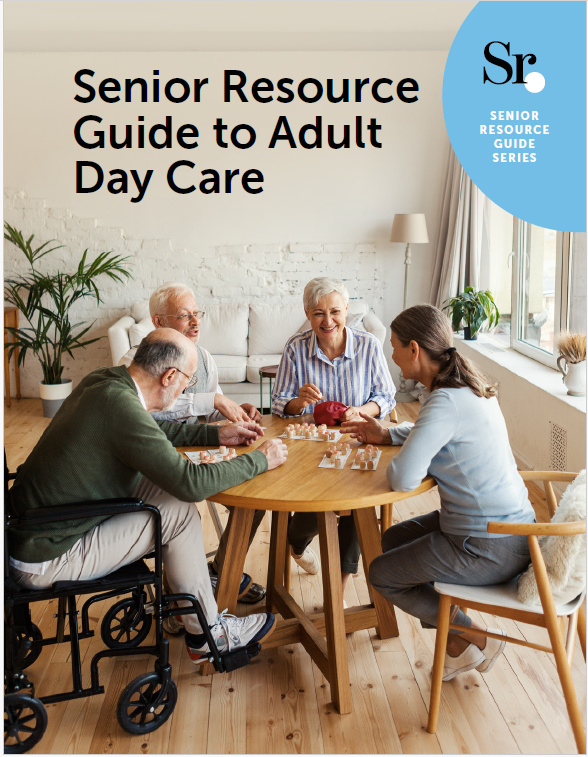Grandchildren Need To Be Listened To

It was a month to the day after Bill had introduced Rod, a faith-based life coach and life coach trainer, to the group who gathered each month to learn about some area of interest to seniors. Once again, the room was filled, including some who had not been present at the previous meeting.
“I’m pleased to introduce my friend Rod, who introduced us to the concept of “Grandcoaching” at last month’s meeting. Some of you were not here, so let me tell you about Rod.
“He and I did our undergraduate work together at a university in Alabama. He has over 20 years of experience as a life coach, and he holds certifications as a life coach and a life coach trainer. He has worked with a number of Christian ministries, including the premier Christian counseling organization in the country. As promised, tonight he will expand on the important skills Christian life coaches use, and how we grandparents can utilize them with our grandchildren.”
Sidney’s hand shot up before John could finish, and her question followed quickly. “I was able to get my granddaughter to put me on your Grandcoaching.com website. But I’m not sure I could take a course online. I’m just not that good at navigating the Internet.”
Hearing a murmur of agreement, Bill replied, “Rhonda, I would suggest you get your granddaughter to help you work your way through the course. That way you will be learning Internet skills from her, and she will be benefiting from the Grandcoaching material you will be studying. Rod, do you think that might work?”
“I don’t see why not,” Rod replied as he moved to take John’s place at the podium. “I’ve learned a lot from a couple of my grandchildren about Internet do’s-and-don’ts. And this has helped me build a closer relationship with them.
“Now, let me begin by recapping what I meant by life coaching. Last time I drew a contrast between counseling and coaching. Counseling typically looks into a person’s past to deal with serious issues such as abuse, bullying, or other forms of trauma. Coaching, on the other hand, helps a person understand where they are in life, then formulate a plan and goals to help them move forward. Through our Grandcoaching course, we have heard from a number of grandparents who have told us they feel it helped empower them to be a positive influence on their grandsons and granddaughters. They especially like learning how to steer their grandchildren away from the negative influences they have been getting in the public school and on social media.”
Grandchildren Need Coaching

Near the back of the room, Rod noticed a hand raised. “Do you have a question or comment?”
“I wasn’t here last time,” Linda responded. “But several of my friends told me about what you said about coaching. I have three grandchildren; all are in their teens. And they’re pretty good kids, at least as far as I know. I’m not sure they need coaching.”
Rod paused before replying. “One thing we’ve learned since we launched the Grandcoaching course is that boys and girls from a young age through adolescence will benefit from what their grandparents have learned while taking the course. We don’t view this as something that’s only beneficial for children who engage in delinquent behavior. Do you play a sport?”
“As a matter of fact, I’m pretty good at tennis,” Linda stated. “And I’m continuing to improve my game.”
“Do you have a coach?” Rod asked.
“Yes, Tommy, my coach, is one of the top tennis pros in our city, and he has competed in a number of tournaments.”
“To what degree has he helped you?” Rod continued.
Linda replied, “He’s made a great deal of difference. At first, I resented the things he was telling me that I was doing wrong. But I finally came to realize he was only trying to steer me away from bad habits and improve my game.”
“You would agree that you needed coaching to improve your tennis game and that coaching has benefited you?”
“I see where you’re going,” Linda continued. “I guess if a senior like me, who’s been set in her ways for quite some time, can benefit from coaching, maybe my grandkids can too.”
Grandchildren Need to be Listened to

“So let me get into tonight’s discussion,” Rod transitioned. “Do you remember the two most important life coaching skills I talked about last time?”
Bart raised his hand, and when Rod pointed to him, he stated, “Listening and asking certain kinds of questions. I don’t remember exactly the word you used, but I decided to try using both of those skills with my Little League team. And they seemed to work fairly well.”
“Cultivating questions,” Sydney interjected. “I remember that because I grew up on a farm.”
“Yes,” Rod replied. “We call them cultivating questions because, just like a farmer has to break up the soil and prepare it in order to produce a healthy crop, we as coaches need to ask the people we coach the kind of questions that break up emotional barriers, allow deeper penetration of the seeds we want to plant in the soil of their mind, and enable the good content we share with them to take root and bear fruit.
“But let me turn a corner and focus on the other foundational skill for a moment. If we don’t engage in active listening, we can ask all the cultivating questions we can think of, and we still may not penetrate our grandchildren’s minds.”
“But I thought parents and grandparents were supposed to be the authority over children. Isn’t that what the Bible teaches?” The question came from Stanley.
“Yes, God does give authority and responsibility to parents in terms of their children. That’s what Ephesians 6:1 says. And my parents drilled that into me from an early age. ‘Children obey your parents….’
“I also believe grandparents can and should play an important role in the lives of their grandchildren. In Deuteronomy 4:9 Moses instructed the Israelites to remember the things he had taught them, and to communicate them to their children and their children’s children—their grandchildren. And that’s what Timothy’s grandmother Lois and mother Eunice did for him according to 2 Timothy 1:5.
“But I think we need to ask ourselves, what’s the most effective way to carry this out? Is it to preach authoritatively? Or might it not be more effective for us to listen to our grandchildren, so we can discern where they are, and then ask those clarifying and cultivating questions while continuing to practice our listening skill. After all, God gave every grandparent two ears, and only one mouth.”
“Heard that before,” Sidney interjected. “So maybe we should listen twice as much as we talk?”
“That might be difficult, but it may not be a bad idea to try,” Rod replied.
The Question Funnel

“But how do I know what questions to ask my grandchildren?” Linda had waved from the back of the room to get Rod’s attention.
“Excellent question,” Rod responded. “Let me tell you guys about something we incorporated into our Grandcoaching course that can help you ask the right questions at the right time. It’s called the question funnel. Here’s how it works.
“Imagine a funnel with a wide opening at the top, that narrows down to a small spout at the bottom. With the question funnel, you begin the conversation with broad opening questions, then narrow the focus of your questions until you eventually are asking closed questions.”
Seeing several hands go up, Rod continued, “Let me answer the question I think some of you are about to ask. What are open questions and what are closed questions?
“I like to explain it this way. You actually could think about four types of questions: open, clarifying, closed and commitment.
- Open questions are…
- designed to draw out a longer response from the person you are coaching.
- questions that cannot be answered with a single word or a short phrase.
- require the respondent to express a certain amount of knowledge and understanding, as well as attitudes, beliefs opinions or feelings.
We often refer to them as open-ended. They work well to break the ice with the person you are coaching, build rapport, and identify potential topics to explore as you coach.
- Clarifying questions…
- sometimes referred to as follow-up questions, are primarily used to avoid misunderstanding, or to bring more clarity to a previous response.
- may be used to broaden or narrow an answer.
For example, they can be used to seek longer answers to open questions–like ‘Tell me more…’ Or they can draw the person you are coaching back from an irrelevant or nonresponsive answer.
- Closed questions, in contrast to open-ended questions, typically
- prompt short answers, often a single word, maybe a yes or no.
- are simple, specific, brief, and factual
You might think of closed questions as a multiple-choice quiz, where the coach provides a limited number of acceptable answers. By design, these limit the response. Closed questions are good for concluding a discussion, framing a perspective, or capturing and emphasizing specific details.
- Commitment questions are just what they sound like; questions designed to secure a commitment or to gauge the level of commitment, of the person you are coaching. Specifically, what are they agreeing to do? How much time and effort are they willing to put into fulfilling their commitment? How passionate are they about it.
In our course, we recommend that every coaching session should end with the person you are coaching making a commitment to themselves and to the coach about what they will do to move forward in fulfilling their God-given purpose.”
As Bill joined Rodney on the platform, the life coach concluded, “I’m sorry we’ve run out of time. I noted that several of you had questions, and if you will jot those down, and if Bill invites me back, I’ll be glad to answer those questions and provide some additional information on these important skills.

“One final word if I may. Let me encourage you to visit our website Grandcoaching.org. Check out the articles and other resources available there. And I would encourage you to prayerfully consider enrolling in the online 16-week course. We’ve recently reduced the cost significantly. Remember, if you need help taking an online course, grandchildren provide an excellent resource. And the benefits flow both ways!”

Popular Articles About Grandparenting
Originally published September 28, 2023







